Disclosure: This article contains affiliate links. We may earn a commission from purchases at no extra cost to you, which helps our travel content.
The first time I stepped into Chengdu's neon-soaked streets after sunset, I felt that familiar rhythm of discovery pulsing through me – that same electric anticipation I used to feel before championship games. This city, famous for pandas and face-changing opera by day, transforms into something entirely different when darkness falls. What began as a weekend exploration with my university friend Mei, who relocated here five years ago, evolved into a recurring pilgrimage to what I now consider China's most underrated nightlife destination. Forget what you've heard about Shanghai and Beijing – Chengdu's after-dark personality blends traditional teahouse culture with underground electronic scenes in ways that continually surprise even the most seasoned night owls.
Teahouse Culture with a Twist: Where Chengdu's Nights Begin
In Chengdu, the line between day and night blurs within its legendary teahouses. While most tourists experience them during daylight hours, locals know the real magic happens after 8 PM when many transform into intimate social hubs. My favorite, Zhangliangfen Teahouse near Jinli Street, begins as a traditional tea-sipping spot but gradually morphs into a gathering place where musicians spontaneously perform and storytellers command rapt attention.
During my last visit, an elderly gentleman with hands weathered by decades of tea cultivation showed me the proper way to appreciate the region's famous flower tea – 'It's a sprint and marathon simultaneously,' he explained, demonstrating how to savor both the immediate aroma and lingering finish. I've learned to bring my insulated tea tumbler to these sessions, as the locals often gift special tea blends to visitors who show genuine interest in their craft.
What makes these teahouses unique is their multigenerational appeal. Unlike Western nightlife that often segregates by age, here you'll find university students alongside their grandparents, all engaging in the gentle art of conversation that flows as steadily as the tea. The atmosphere feels like a perfectly executed team play – everyone contributing something essential to the experience.
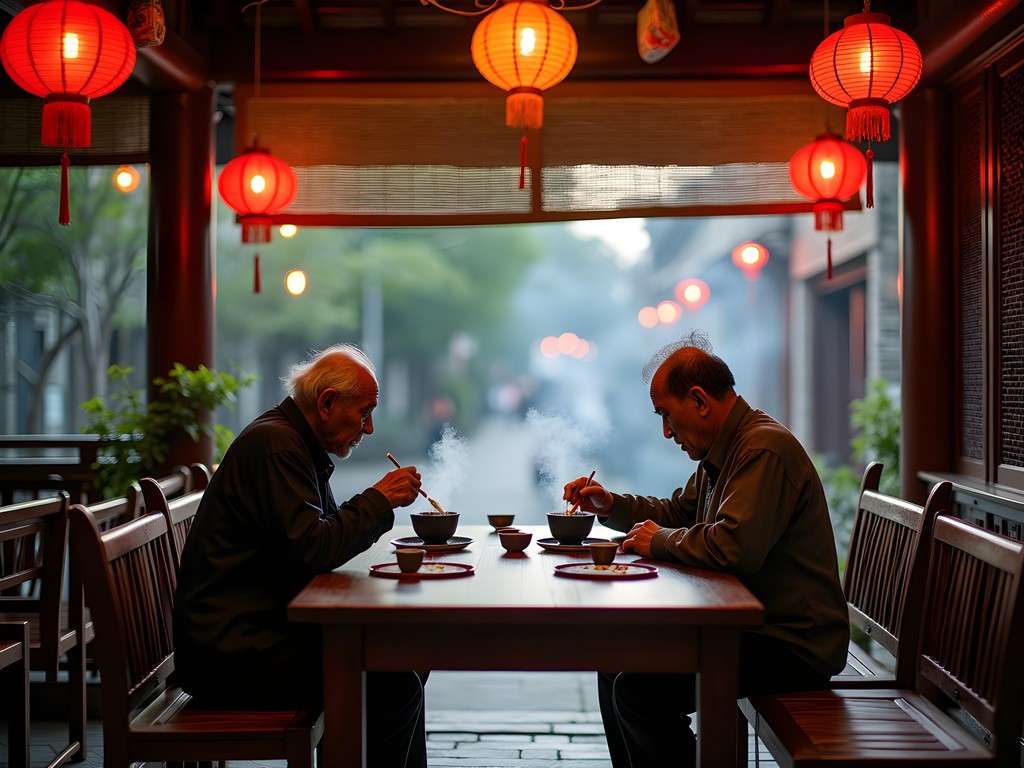
💡 Pro Tips
- Most authentic teahouses charge a small cover fee (20-30 yuan) that includes unlimited hot water refills
- Learn the finger-tapping thank-you gesture when someone refills your tea – it's a respectful acknowledgment
- Visit Heming Teahouse in People's Park first during daytime to understand basics, then explore evening teahouse culture
Hotpot and Hot Beats: Chengdu's Dinner-to-Dancing Pipeline
If teahouses are Chengdu's warm-up routine, then its legendary hotpot establishments are where the energy truly builds. The brilliance of Chengdu's nightlife lies in how seamlessly it transitions from culinary experiences to musical ones. Many locals follow a rhythm: hotpot dinner from 8-10 PM, followed by drinks and dancing until dawn.
My go-to hotpot strategy involves starting at Shudaxia, a mid-range spot where the spice level is customizable but the atmosphere is consistently electric. Unlike the touristy chains, this local favorite transforms around 9:30 PM when staff clear several tables to make room for occasional live music – everything from traditional Sichuan folk to surprisingly skilled acoustic covers of Western hits.
Pro tip: bring a cooling face mist to combat the combined heat of spicy hotpot and crowded spaces. This refreshing spray has saved me countless times when the famous Sichuan peppercorn numbing effect combined with dancing threatened to turn my makeup into abstract art.
From hotpot havens, follow the local twenty-somethings to nearby bars. The area around Jiuyanqiao has developed into a nightlife district where you'll find everything from craft beer at Hugo's to sophisticated cocktails at Jing Bar, where the mixologist created a custom spice-infused drink based on my Egyptian heritage – a thoughtful touch that exemplifies Chengdu's welcoming spirit.
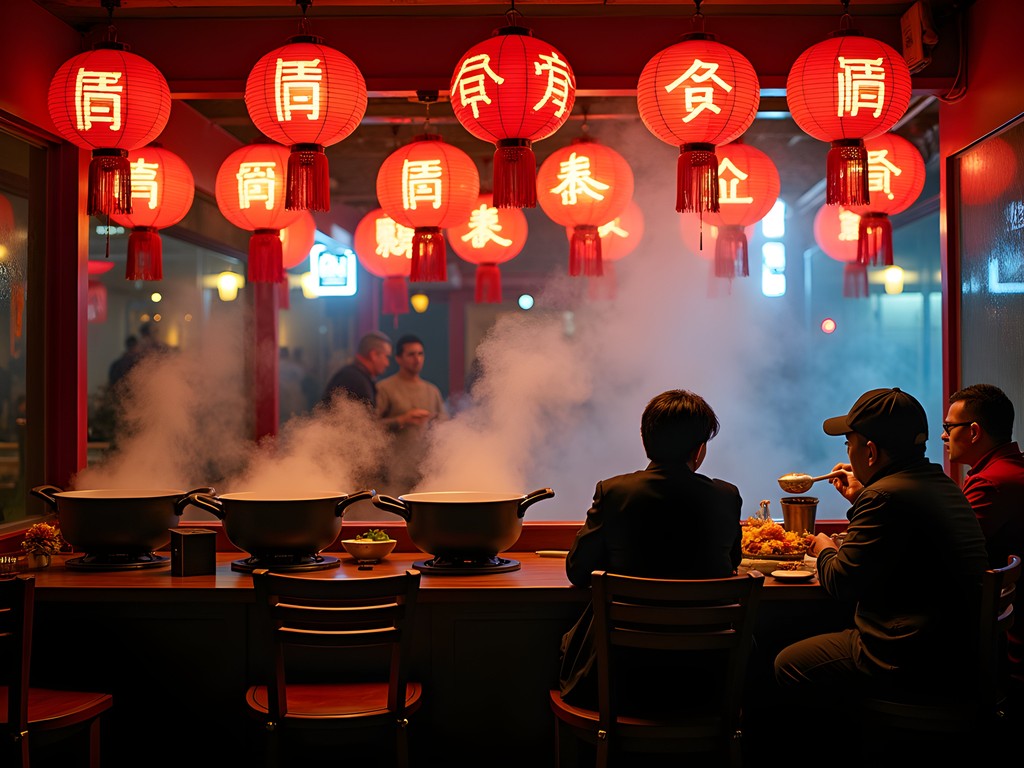
💡 Pro Tips
- Book hotpot tables for 8 PM to align with local dining schedules and ensure smooth transition to nightlife spots
- Use DiDi (China's Uber) for transportation between venues – it's safer than trying to hail taxis late at night
- Carry cash for smaller establishments; while WeChat Pay dominates, many hotpot places and bars still prefer physical currency from foreign visitors
Underground Sound: Chengdu's Surprising Electronic Music Scene
What Sheffield was to the UK electronic scene in the 90s, Chengdu has become for modern China – an unexpected incubator for cutting-edge sound. My ex-husband would appreciate how this city has cultivated a thriving vinyl culture alongside its digital innovation.
TAG Club stands as the epicenter of Chengdu's electronic music community, hosting both international DJs and nurturing local talent. Unlike Beijing's occasionally pretentious venues, TAG maintains a refreshingly inclusive atmosphere. During my recent visit, I witnessed a 60-year-old professor of traditional Chinese music jamming alongside university students – this cross-generational exchange epitomizes what makes Chengdu's nightlife special.
For vinyl enthusiasts, Morning House Records near Sichuan University is non-negotiable. The owner, Old Zhang (as he insists on being called despite being barely 40), has curated an impressive collection of both Chinese experimental music and international classics. I always pack my portable record player when visiting Chengdu, as Zhang inevitably introduces me to limited-press records from local artists that I can't find elsewhere.
For those seeking a more intimate electronic experience, the unmarked venue nicknamed 'Basement' (located quite literally in the basement of a residential building near Tongzilin) hosts experimental music nights every Thursday. The space fits maybe 50 people comfortably, creating an intensity reminiscent of early Manchester club scenes. Bring your earplugs – the sound system is surprisingly powerful for such a small space.
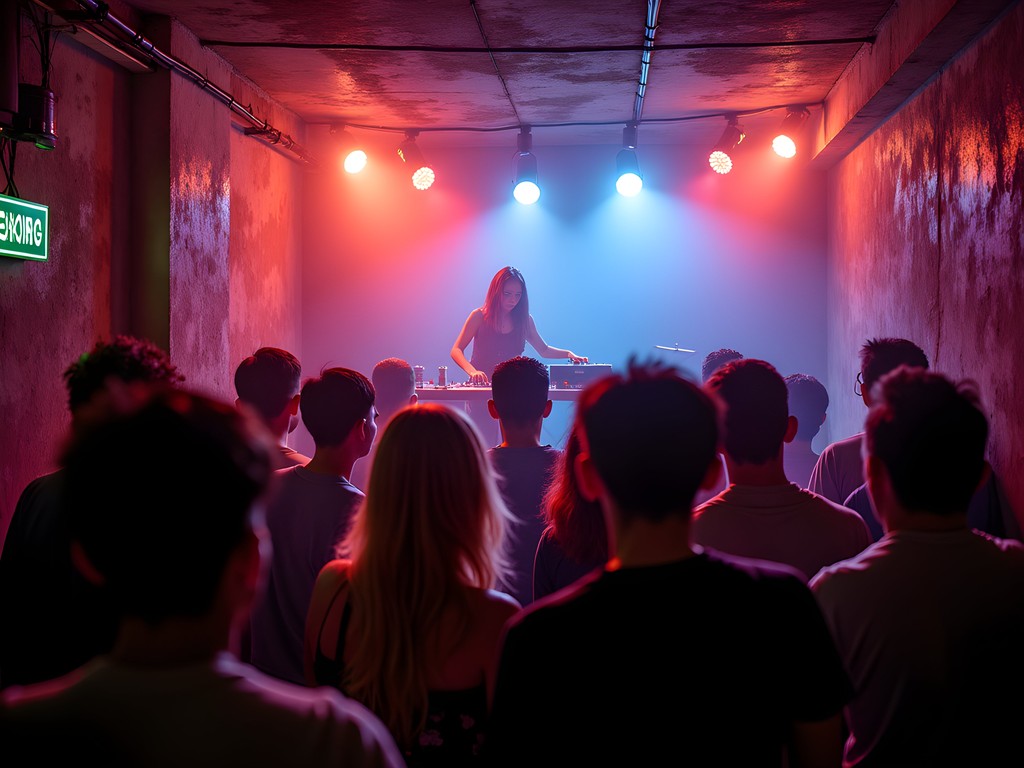
💡 Pro Tips
- Follow WeChat accounts 'ChengduNoise' and 'SichuanSounds' for up-to-date information on underground events
- Bring ID to all venues – random checks are common, especially at underground locations
- Most electronic music events don't get busy until after midnight, so pace yourself accordingly
Street Performance and Night Markets: Chengdu's Accessible Nightlife
Not every memorable night in Chengdu requires club admission or bar tabs. The city's street performance culture thrives after dark, particularly in the pedestrianized areas around Chunxi Road and Kuanzhai Alley. These performances range from traditional Sichuan opera snippets to breakdancing crews and everything in between.
My background in sports coaching gives me particular appreciation for the physical mastery displayed by Chengdu's acrobatic performers. Near the entrance to Jinli Street, a rotating cast of contortionists and balance artists perform feats that would challenge Olympic gymnasts, often incorporating traditional elements like tea ceremony movements into their routines.
For families traveling with children – yes, you absolutely can experience Chengdu's nightlife with kids in tow – these street performances offer the perfect introduction to local culture without committing to late hours or inappropriate settings. My daughter was mesmerized by the face-changing performers during her first visit at age seven, an experience that sparked her continuing interest in theatrical makeup.
The night markets surrounding these performance areas offer another dimension of after-dark Chengdu. Beyond the expected street food (though do try the late-night version of 'chaoshou' dumplings, somehow more flavorful after 10 PM), you'll find artisans creating everything from sugar paintings to personalized chops (name stamps). I always bring my compact sketchbook to capture these fleeting moments – drawing rather than photographing often leads to conversations with curious locals.
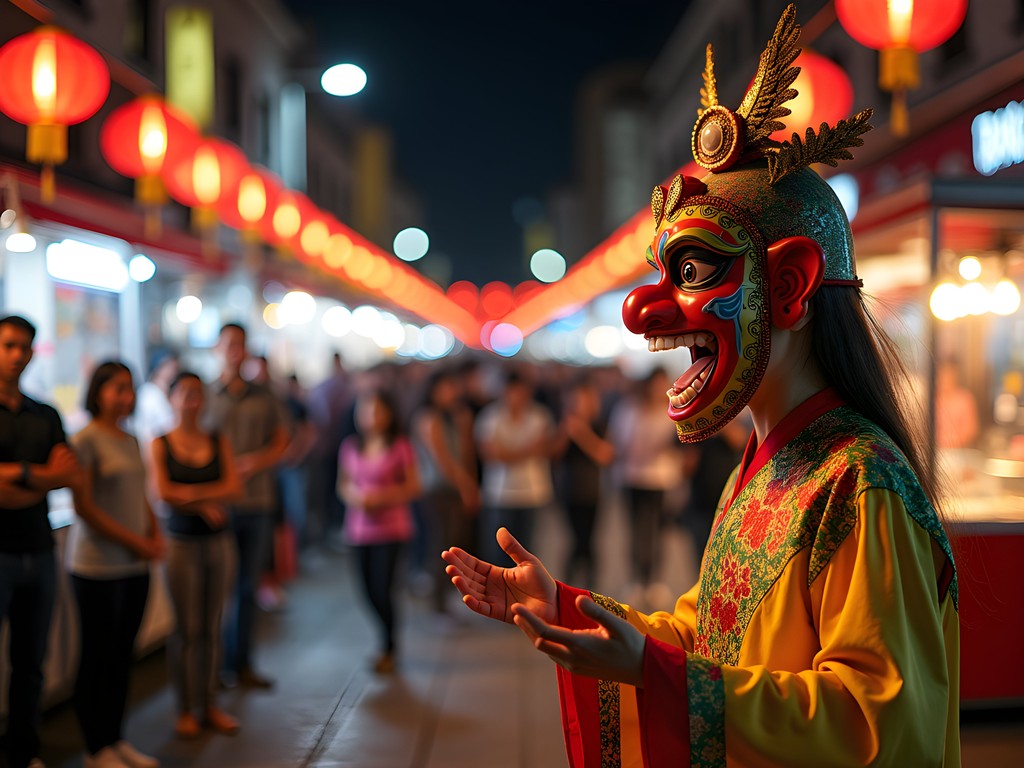
💡 Pro Tips
- Performances at Jinli Street and Kuanzhai Alley typically run until 10:30 PM, with the best acts appearing after 8 PM when day tourists have departed
- Bring small bills (10 and 20 yuan notes) for tipping street performers – it's not required but always appreciated
- Most street food vendors accept WeChat Pay, but prepare cash just in case
Recovery and Reflection: Chengdu's Morning-After Rituals
Every great nightlife city has its recovery rituals, and Chengdu's are particularly restorative. After a night exploring electronic music venues or bar-hopping through Jiuyanqiao, locals don't sleep until noon – instead, they embrace early morning recovery activities that I've incorporated into my own routine.
The banks of the Jin River come alive around 7 AM with tai chi practitioners, whose flowing movements remind me of the controlled precision we aim for in sports training. Joining these sessions (most welcome foreigners warmly) provides both physical recovery and cultural connection. I always pack my quick-dry yoga towel for these impromptu morning sessions, as the standard cotton towels most hotels provide aren't ideal for exercise.
For physical recovery, Chengdu's traditional bathhouses offer the perfect morning-after remedy. Rongjin Bathhouse near Wenshu Monastery provides separate men's and women's facilities with various temperature pools, steam rooms, and remarkably affordable massage services. The locals taught me to bring my silicone travel containers filled with my preferred hair products, as the provided toiletries can be harsh on non-Chinese hair textures.
Finally, no recovery ritual in Chengdu is complete without proper morning nutrition. Skip the hotel breakfast and head to Chengdu Snack Street near People's Park for steaming bowls of douhua (silken tofu in spicy sauce) and freshly fried youtiao (dough sticks). These protein-rich foods, alongside the ubiquitous tea, create the perfect recovery formula before you begin planning your next night of adventures.
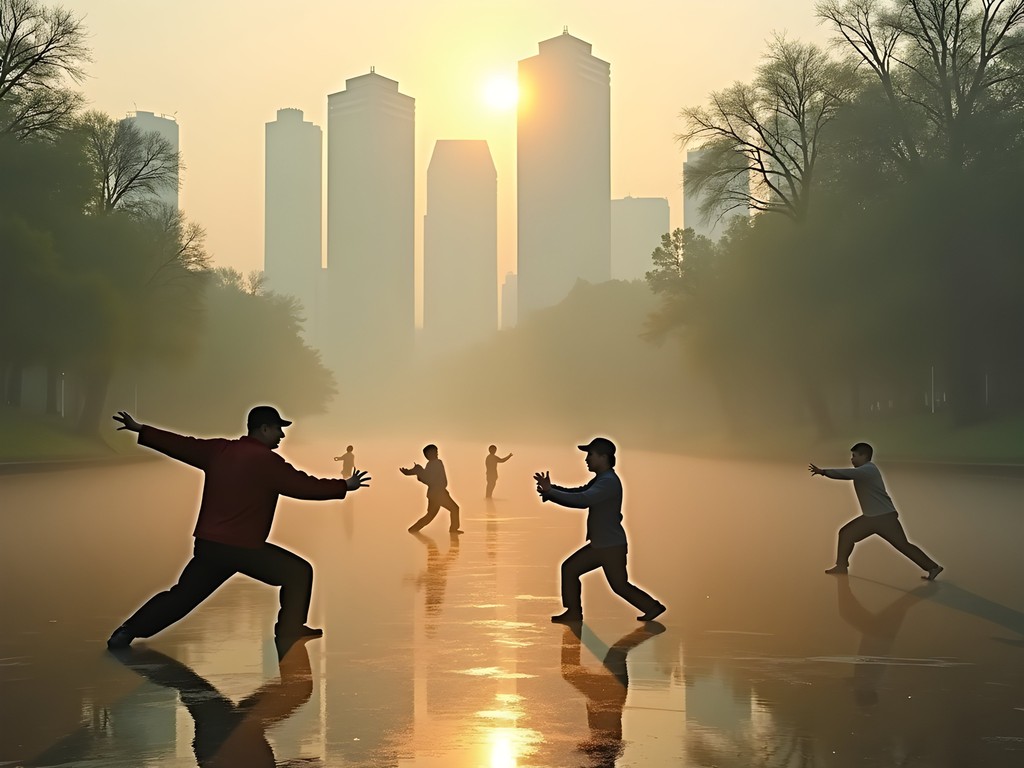
💡 Pro Tips
- Most tai chi groups meet between 6-8 AM in public parks – simply approach respectfully and mimic the movements to join in
- Bathhouses typically charge 80-120 yuan for full access, with massage services as optional add-ons
- Bring your own toiletries and flip-flops for bathhouse visits, though towels are always provided
Final Thoughts
Chengdu's nightlife defies simple categorization – it's neither exclusively traditional nor aggressively modern, but rather a seamless blend that honors cultural heritage while embracing contemporary expression. What makes this city special after dark is precisely this refusal to choose between identities. Like the best coaching strategies I've developed over my career, Chengdu's approach to nightlife is adaptive, responsive, and ultimately inclusive.
Whether you're traveling solo, with friends, or even with family, these streets offer nighttime experiences that transcend typical tourist encounters. The key is approaching each venue – from humble teahouses to thumping electronic clubs – with genuine curiosity rather than preconceived expectations.
As my friend Mei told me during my first visit: 'Chengdu doesn't perform for tourists at night – it simply invites them to participate in what locals already enjoy.' This authenticity is increasingly rare in our globalized world, making these Sichuan nights all the more precious.
So next time your travel plans point toward China, consider giving Chengdu more than just a pandas-and-hotpot daytrip. Stay for the sunset, and discover how this city transforms when the neon lights reflect against ancient stone. The rhythm of Chengdu after dark will stay with you long after you've returned home – a persistent beat that calls you back to its streets time and again.
✨ Key Takeaways
- Chengdu's nightlife seamlessly blends traditional culture with contemporary scenes, making it accessible for various interests and age groups
- The city follows a natural progression from evening teahouses to hotpot dinners to late-night music venues
- Street performances and night markets offer family-friendly nightlife options without sacrificing cultural authenticity
- Morning recovery rituals like tai chi and traditional bathhouses complete the full Chengdu nightlife experience
- The most memorable experiences come from following locals rather than tourist guides
📋 Practical Information
Best Time to Visit
year-round, though spring and autumn offer ideal temperatures for outdoor nightlife
Budget Estimate
300-600 yuan per night including food, drinks, and venue entries
Recommended Duration
minimum 2 nights to experience different aspects of the scene
Difficulty Level
Intermediate Due To Language Barriers And Unmarked Venues
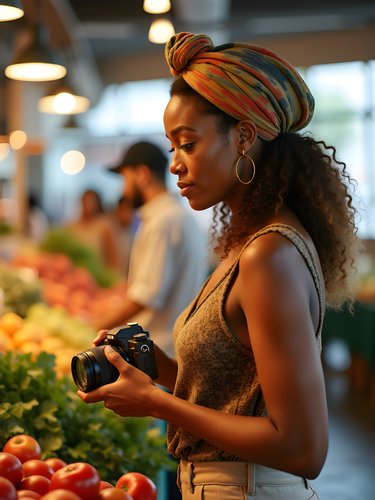
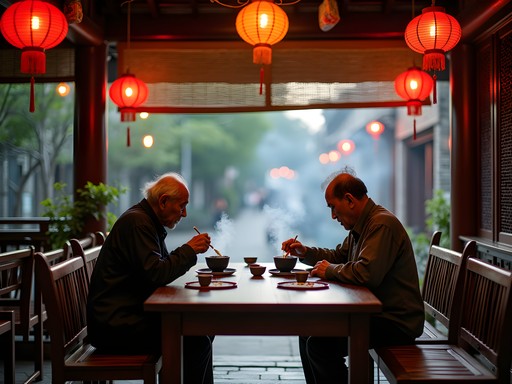
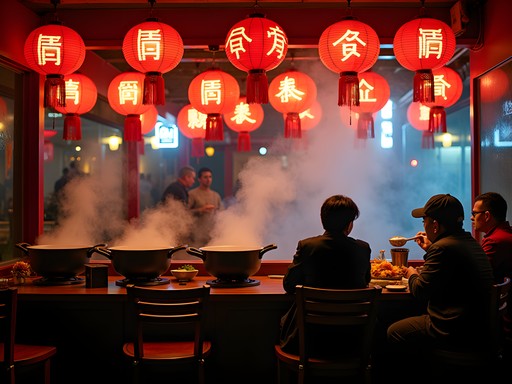
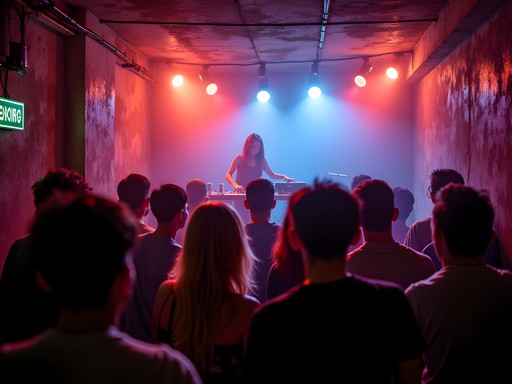
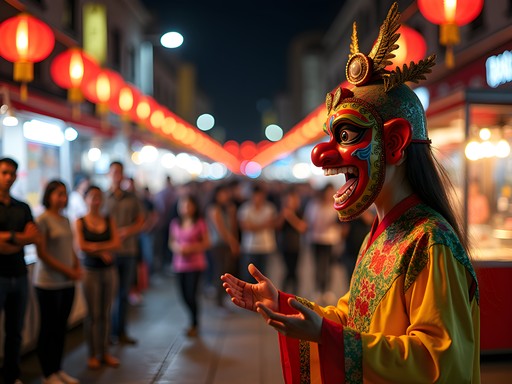
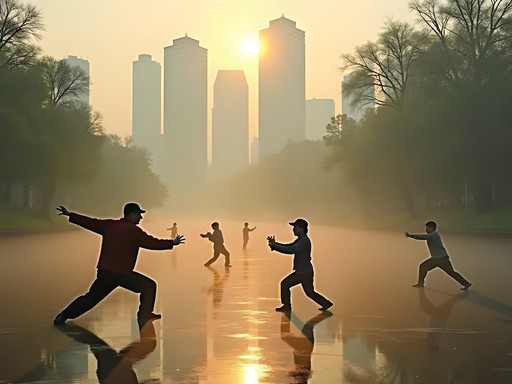


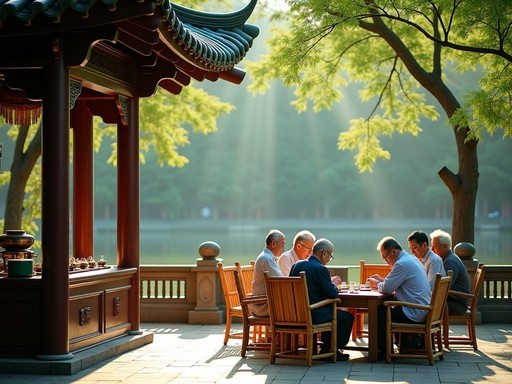
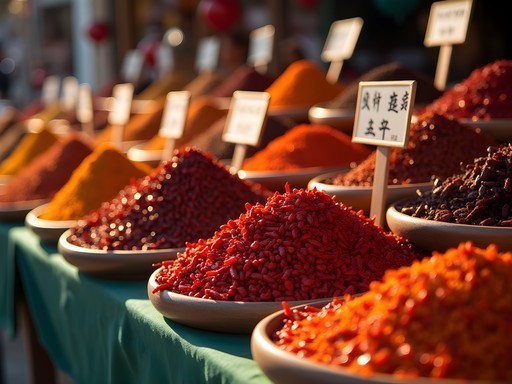
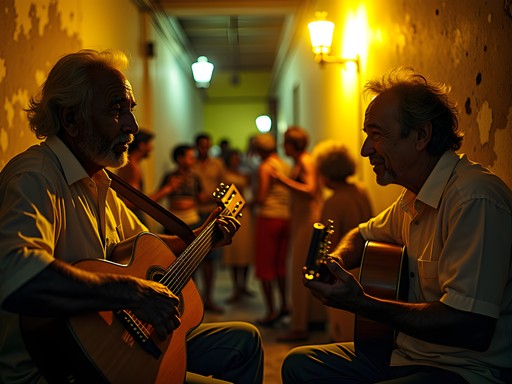
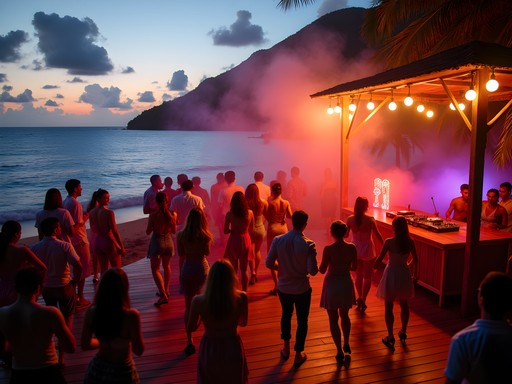
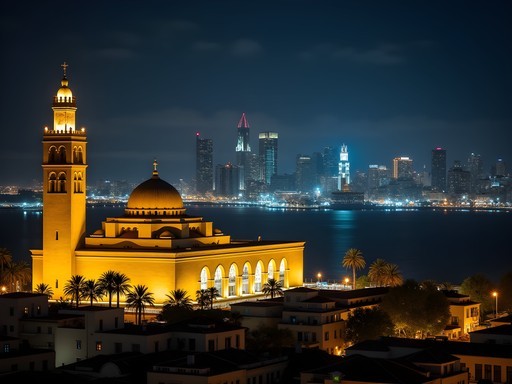
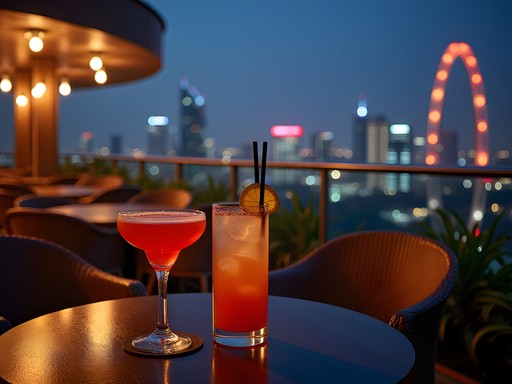
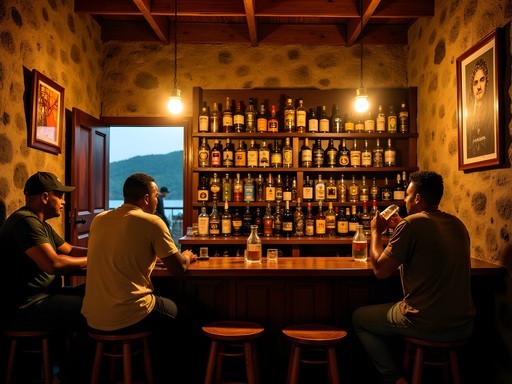
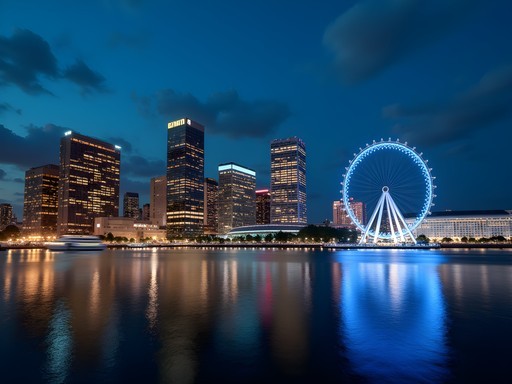
Comments
coffeefan
Love this post! I'm heading to Chengdu next month and definitely want to check out some of these spots. Are there any specific teahouses you'd recommend that do the transition to evening entertainment well? Also curious about dress codes at the clubs - casual ok or should I pack something more formal?
Lucy Mohamed
For teahouses that transition nicely into evening, I'd recommend Zhai Xiangzi in Kuanzhai Alley - they have traditional performances that start around 8pm. As for dress code, most places are pretty casual, but the upscale clubs in Lan Kwai Fong area appreciate smart casual at minimum. Nothing too formal needed though - Chengdu keeps it pretty relaxed compared to Shanghai or Beijing!
redrider
Those street food pics are making me hungry! Anyone tried the midnight snack markets she mentioned?
happyexplorer
Yes! The one near Chunxi Road is incredible. Get the spicy rabbit heads if you're brave enough!
redrider
Spicy rabbit heads?! Not sure I'm that adventurous but will definitely check out the market!
Taylor Moreau
Excellent guide, Lucy! Having visited Chengdu numerous times for business over the past decade, I've witnessed its nightlife evolution firsthand. The juxtaposition of ancient teahouse culture against the emerging electronic scene is fascinating. Your section on Hotpot and Hot Beats perfectly captures that transition from dinner to nightlife that makes Chengdu special. One addition I might suggest is Jah Bar in Tongzilin - small venue but exceptional live music on weekends. For business travelers with limited time, it's worth noting that many of the teahouses in Kuanzhai Alley stay open quite late and offer a perfect setting for casual meetings that can transition into more social evenings. I always bring my pocket translator which has been invaluable for communicating with local musicians and club owners.
smartwalker
Great post! How safe is it for solo female travelers to explore Chengdu's nightlife? Any specific areas to avoid?
Lucy Mohamed
Thanks for asking! I found Chengdu incredibly safe as a solo female traveler. The main nightlife areas like Jiuyanqiao and Tongzilin are well-lit and busy until late. I'd recommend using DiDi (Chinese ride-sharing app) for getting around after midnight rather than walking alone, but that's just general travel sense. The locals were incredibly helpful whenever I needed directions!
smartwalker
That's really reassuring, thanks Lucy! Just downloaded DiDi in preparation.
happyexplorer
This brings back so many memories! The teahouse-to-club pipeline is real in Chengdu. Those hidden electronic music venues were my favorite discovery there last year.
redrider
Which electronic venues did you hit up? Planning to go in December!
happyexplorer
TAG Club was amazing! Also check out .TAG if you're into underground techno. Completely different from what I expected in Chengdu!
wanderlust_zhang
If you're into the electronic scene, check out Jellyfish on a Thursday - they have this amazing underground bass night that's not advertised anywhere. Just look for the blue door near Tongzilin metro exit B. The password changes weekly but just say "Lucy sent me" and they'll usually let you in!
beats_traveler
Jellyfish is INSANE! Was there in October and the sound system blew me away. Did you catch the rooftop sunrise set?
wanderlust_zhang
Yes!! DJ Panda's ambient set at 5am was spiritual. Never thought I'd experience that in Chengdu of all places.
spicyfoodie
Those hotpot recommendations are 🔥🔥🔥 Literally cannot wait to try them next month!
first_time_asia
Going to Chengdu next month for the first time! Is the nightlife scene safe for solo female travelers? Any specific areas I should avoid?
sunsetmood
Super safe in my experience! Chengdu felt much safer than most US cities at night. Just use normal travel precautions. The metro runs late and taxis are reliable.
Lucy Mohamed
Absolutely safe! I've wandered Chengdu at all hours as a solo female traveler. The hotpot restaurants I mentioned stay open until 3-4am and are full of locals. Stick to the main areas like Chunxi Road, Jinli, and Kuanzhai for your first few nights until you get comfortable. Feel free to DM me if you need specific venue recommendations!
Morgan Cunningham
Lucy, your analysis of Chengdu's electronic music scene is remarkably astute. I've been tracking the development of underground music venues across Asia for a decade, and Chengdu's evolution has been fascinating to witness. The juxtaposition of ancient Sichuan culture against cutting-edge sound systems creates something genuinely unique. I'd add TAG Club to your list - their monthly experimental music showcases blend traditional Sichuan instruments with modern production in a way I've not experienced elsewhere. I documented several venues in my travel journal during my three-week stay last autumn and found the scene far more sophisticated than many Western travelers expect.
chengdu_explorer
TAG Club is incredible! Was there last month and caught a set where they mixed erhu with techno beats. Mind-blowing stuff.
sunsetmood
That part about teahouses transforming into nightlife spots is so spot on! I was in Chengdu last spring and stumbled into this place called Lotus Pond Tea House that turned into this amazing live music venue after 9pm. The transition from quiet tea sipping to vibrant music scene was incredible. Did you check out the Jinli Street area at night? The lanterns and street performers there were my absolute highlight!
Morgan Cunningham
Lotus Pond was quite the revelation when I visited too! The way they blend traditional tea culture with modern entertainment is quintessentially Chengdu. I found Jinli a bit touristy though - did you venture to Kuanzhai Alley? Much more authentic atmosphere in my opinion, especially the smaller venues tucked away in the side streets.
sunsetmood
Actually missed Kuanzhai Alley! Adding it to my list for next time. Is it walkable from the city center?
Morgan Cunningham
Very walkable! About 20 minutes from People's Park. Go after 8pm when the locals start showing up.
Venture X
Premium card with 2X miles, $300 travel credit, Priority Pass